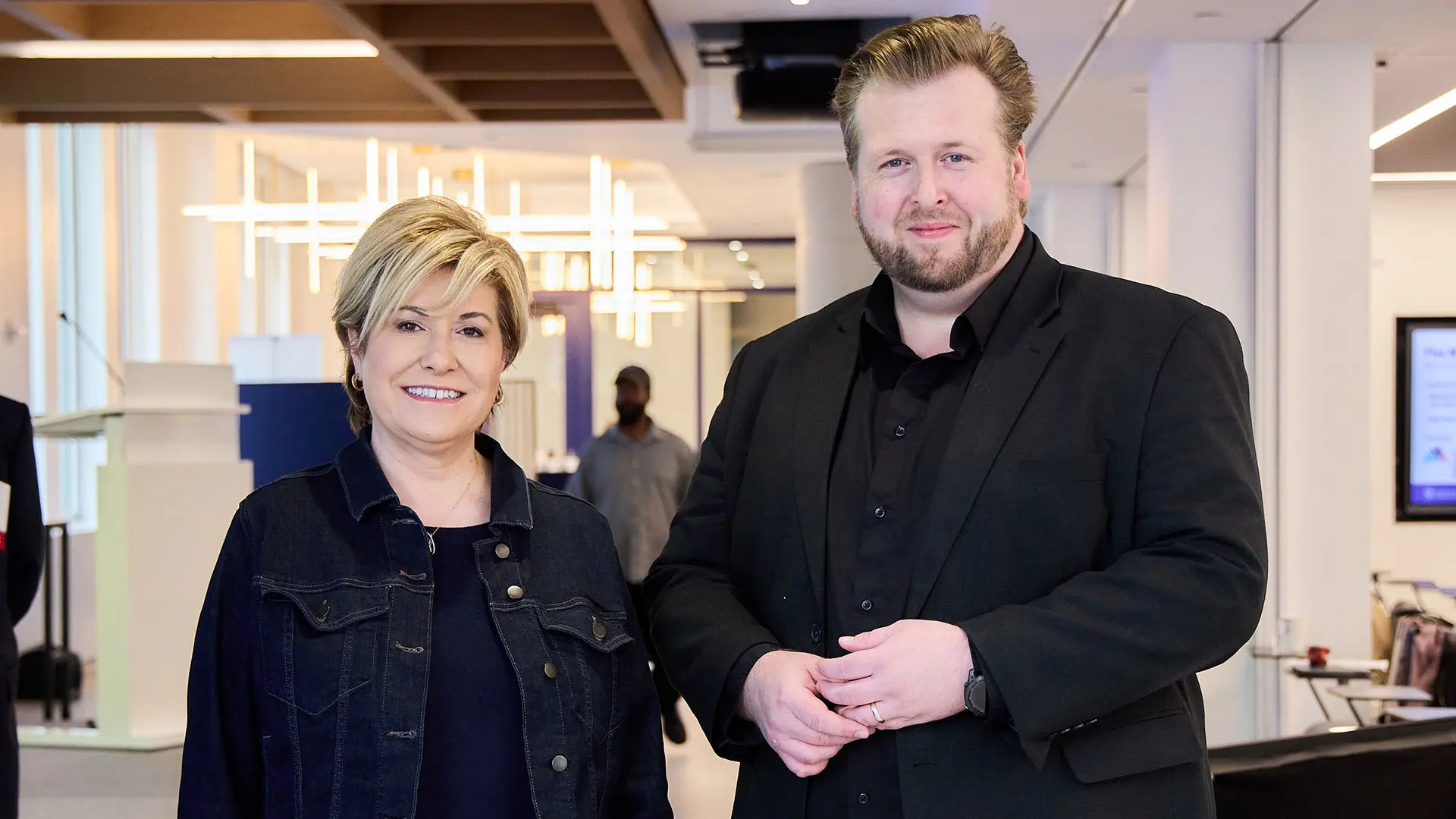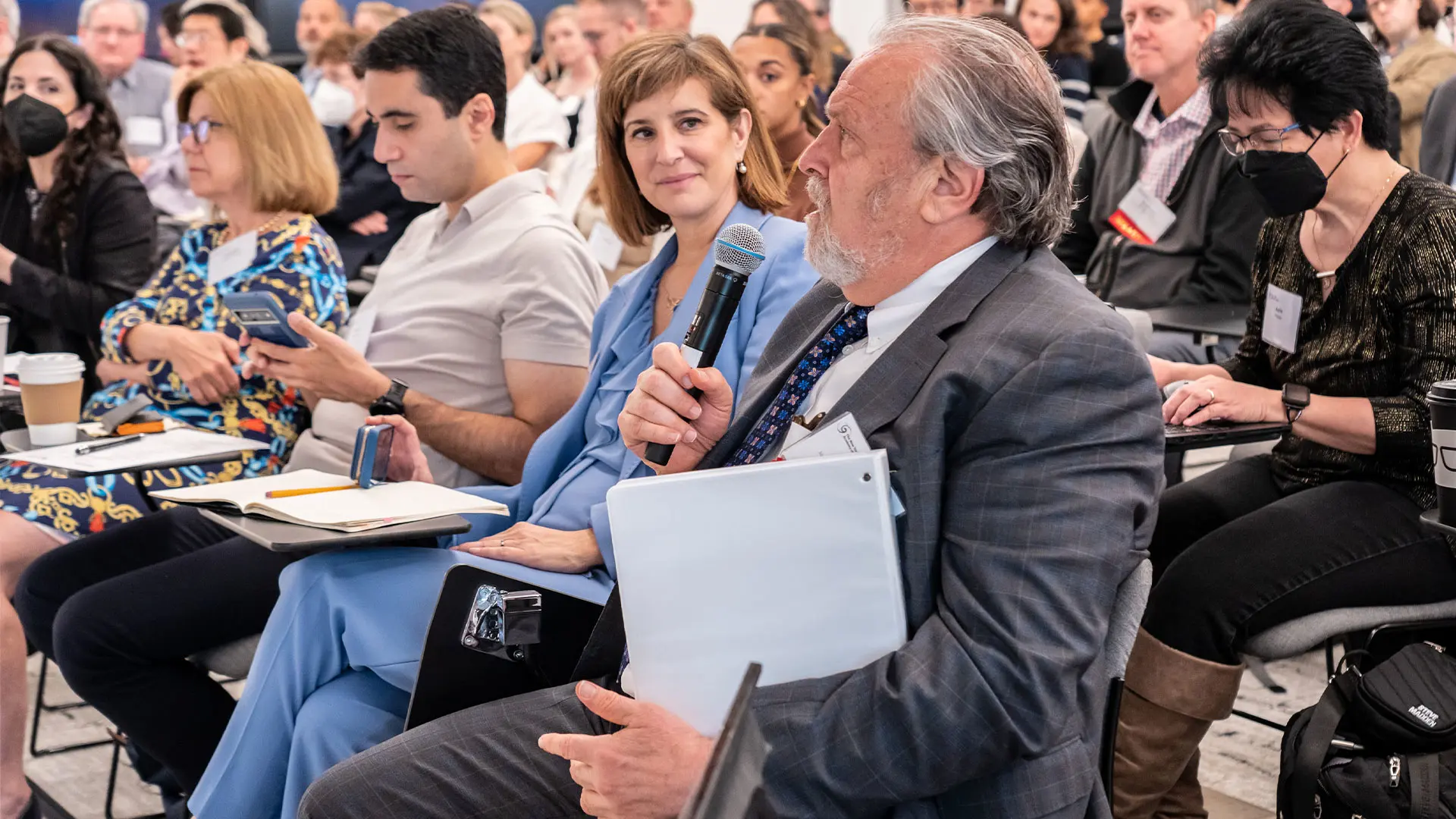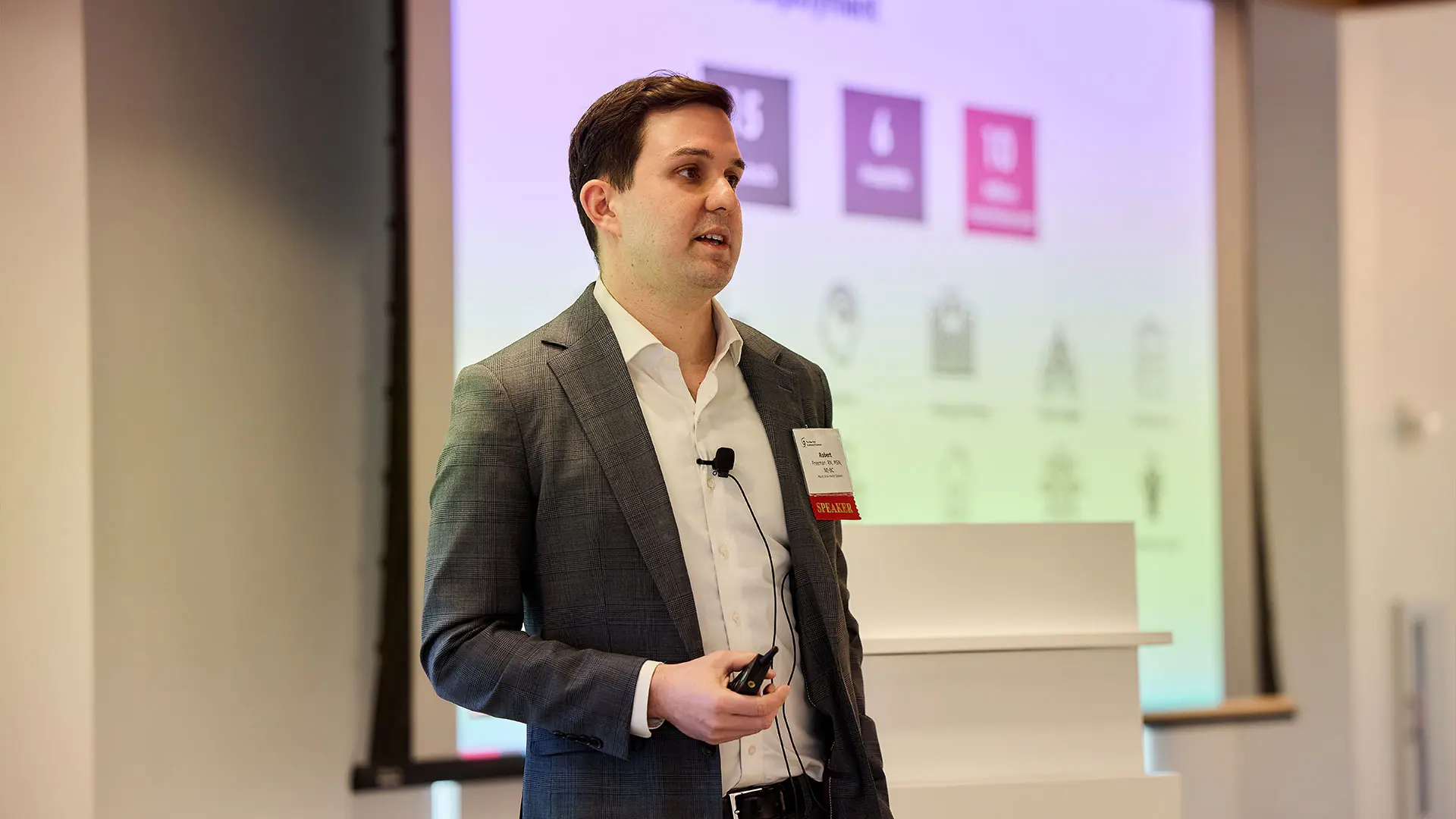In November 2023, the Icahn School of Medicine at Mount Sinai published Frontiers of Medical Research: Artificial Intelligence, a sponsored supplement to Science. The eight articles in this supplement delve into the digital dilemmas of AI, including ethical dilemmas and responsibilities surrounding it; involvement of neural networks and deep learning in research and data analysis; applications in genomics, cancer, and neuroscience; proper data platforms and regulation; and its use at the bedside and in wearable devices.
The two-day symposium featured topics that included: Applying AI to Real-World Problems; Developing Deep Learning Models for Health Care; Problem-Solving Through Disease Prediction Modeling; High-Performance Computing as a Driver of Large-Scale Learning; Using Machine Learning to Map Health Outcomes; Governance, Ethics, and Privacy in AI; and AI Successes, Disappointments, and Hope for the Future.
“Being part of the AI revolution is a huge privilege, but it also comes with enormous responsibilities to ensure that the advanced systems we build, design, develop, and deploy are available to everyone,” said Thomas J. Fuchs, DrSc, Dean for Artificial Intelligence and Human Health at the Icahn School of Medicine at Mount Sinai, in his opening remarks. “And in health care, that means every patient who comes through the doors at the hospital.”

From left: Georgia Tourassi, PhD, and Thomas J. Fuchs, DrSc.
Dennis S. Charney, MD, Anne and Joel Ehrenkranz Dean of Icahn Mount Sinai, told guests: “Mount Sinai has made sizeable investments in the ascendent science to move the needle in the direction of helping us predict, prevent, and develop better treatments for human disease.”
Fundamental to these endeavors, Dr. Charney said, is the Mount Sinai Health System’s pioneering role in advancing digital health and the recent creation of the Windreich Department of AI and Human Health, which he described as the foremost enterprise of its kind in an academic medical setting, allowing Mount Sinai to spearhead AI-based research to improve patient care.
Mount Sinai researchers, for example, were the first in the nation to use AI combined with imaging and clinical data to analyze patients with COVID-19. That led to the development of an algorithm that could rapidly detect the virus based on how it appeared in computer tomography scans of the chest. This innovative approach helped hospitals around the world to more quickly detect the deadly virus, isolate patients, and prevent further spread during the pandemic.
Still, there remains a gap between development and implementation of these machine learning tools, according to Dr. Fuchs. “Very few AI applications are actually being used today by physicians to benefit patients," he said. "In pathology, for example, there is just a single system that has been proven to be safe and effective. There is an enormous chasm between the hype of AI and its practicalities in the clinic, where physicians don’t have the tools they have been promised.”
Mount Sinai researchers were the first in the nation to use AI combined with imaging and clinical data to analyze patients with COVID-19.
Today, Mount Sinai is leveraging its expertise and experience in computational pathology to develop an effective screening tool for EGFR-positive lung adenocarcinomas, targeting a void in health care that results in millions of patients receiving suboptimal treatment for this serious genetic condition.
As elucidated by Gabriele Campanella, PhD, a senior computational scientist at Icahn Mount Sinai in the lab of Dr. Fuchs, detecting mutations directly from stained H&E (hematoxylin and eosin) slides offers the opportunity to overcome the limitations of current clinical sequencing for EGFR.
Today, Mount Sinai is leveraging its expertise and experience in computational pathology to develop an effective screening tool for EGFR-positive lung adenocarcinomas.
In short, a computational EGFR mutation detector uses as a substrate only the digitized pathology slides from the diagnostic H&E biopsy, thus reducing overhead in terms of cost and physical processing for clinicians.
What emerged from this methodology is a computational biomarker for use as a universal screening tool for targetable EGFR mutations in lung adenocarcinoma patients, based on digitized pathology images.
“We showed how a biomarker of this kind could positively impact untold numbers of patients globally,” he said during a presentation. As Dr. Campanella views it, the approval by the U.S. Food and Drug Administration in 2021 of an AI-based software platform for diagnostic reporting of prostate cancer only hints at the vast potential of AI to support clinicians focused on optimizing patient care. While computational pathology has reached a mature state for diagnostics, he believes the next step in the field, as reinforced by his work, will be to bring to the fore computational tools for screening of molecular markers directly from H&E slides.
Robbie Freeman, MSN, RN, a critical care nurse who is Vice President of Digital Experience, showcased how his team’s development of machine learning-based products “to make the world safer for patients” is being utilized by the Mount Sinai Health System.
One innovative system predicts which inpatients are at risk for intensive care unit (ICU) admittance, and in such cases sends an alert to a hospital rapid response team for follow-up. “What we saw in our trial was an overall improvement in 30-day mortality and shorter hospital stays for patients in the intervention group,” said Mr. Freeman.
Also being deployed at Mount Sinai sites is a novel machine learning malnutrition application to identify patients who could benefit from a visit by a registered dietician, and another automated tool that prioritizes patients likely to become delirious so they can be proactively seen by members of a behavioral team.
Speakers from invited institutions included:
David C. Rhew, MD, Chief Medical Officer and Vice President, Microsoft
Jianying Hu, PhD, IBM Fellow and Global Science Leader, IBM Thomas J. Watson Research Center, and an Adjunct Professor at Icahn Mount Sinai
Krzysztof Geras, PhD, Assistant Professor of Radiology, New York University Grossman School of Medicine
Gunnar Rätsch, PhD, head of the Biomedical Informatics Group at ETH Zurich (Switzerland)
Georgia Tourassi, PhD, Director, Center for Computational Sciences, Oak Ridge National Laboratory in Tennessee
Amy Kuceyeski, PhD, Associate Professor of Mathematics in Neuroscience, Brain and Mind Research Institute, Weill Cornell Medicine
Brandon Gallas, PhD, Mathematician and Imaging Physicist, U.S. Food and Drug Administration
Anthony Chang, MD, Chief Intelligence and Innovation Officer, Children’s Hospital of Orange County in California
Presenters and panelists from Mount Sinai also included:
Eric J. Nestler, MD, PhD, Nash Family Professor of Neuroscience, Director of The Friedman Brain Institute, and Dean for Academic Affairs, Icahn Mount Sinai; and Chief Scientific Officer, Mount Sinai Health System
Erik Lium, PhD, President, Mount Sinai Innovation Partners
Emma Benn, DrPH, Associate Professor, Department of Population Health Science and Policy within its Center for Biostatistics
Ipek Ensari, PhD, Assistant Professor, Windreich Department of AI and Human Health
Xiaosi Gu, PhD, Associate Professor of Psychiatry, and Neuroscience, and Director of the Center for Computational Psychiatry
Bruce Darrow, MD, PhD, Professor of Medicine (Cardiology), and Population Health Science and Policy; Senior Vice President of Information Technology; and Chief Medical Information Officer
John F. Crary, MD, PhD, Professor of Pathology, Molecular and Cell-Based Medicine; and Neuroscience
Hayit Greenspan, PhD, Professor of Diagnostic, Molecular and Interventional Radiology
To learn more, visit us on:
Linked In: aimountsinai
Instagram: @AIHealthMtSinai





